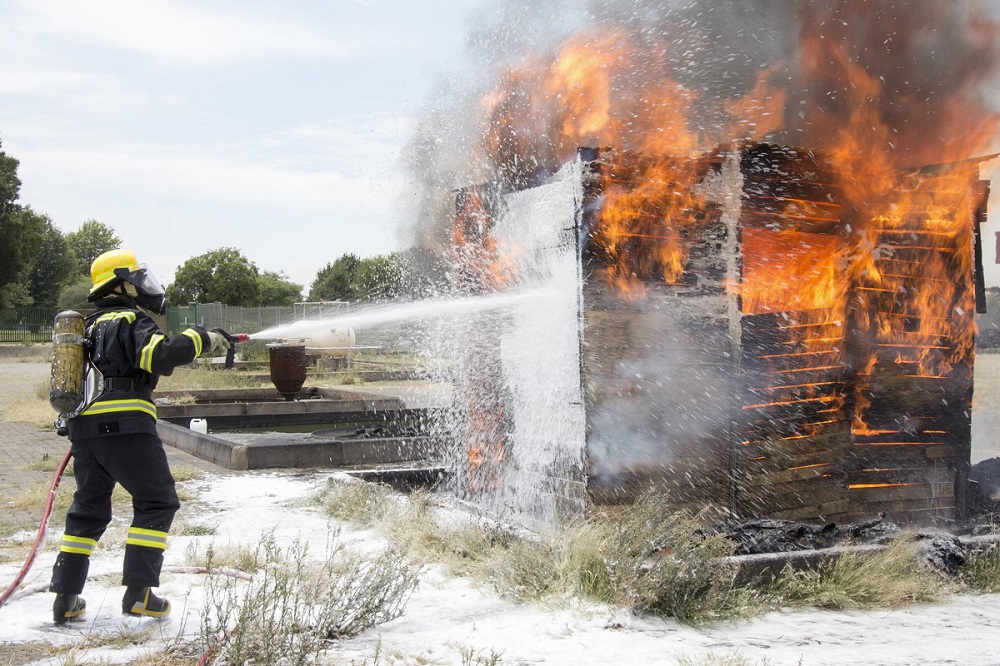Many veterans who served near military bases or airports may have been exposed to harmful firefighting foam known as Aqueous Film-Forming Foam (AFFF). AFFF contains per- and polyfluoroalkyl substances (PFAS), also known as “forever chemicals,” which can linger in the environment and the human body.
These chemicals have been linked to various health problems. In this article, we’ll explore veterans’ rights regarding AFFF contamination and how they can seek compensation for health issues potentially caused by exposure.
Understanding AFFF Exposure and Health Risks
A report published by ScienceDirect notes that PFAS exposure can occur through contaminated drinking water, inhalation during firefighting, or contact with AFFF. Studies suggest potential links between AFFF exposure and various health problems.
This includes certain cancers like testicular cancer, kidney cancer, and prostate cancer, as well as thyroid disease, and immune system issues. The research on AFFF exposure and its health effects is ongoing.
Still, veterans with a history of AFFF exposure and concerning health conditions should seek medical evaluation and discuss their concerns with their healthcare providers. Early detection and intervention are crucial for managing any potential health effects.
VA Disability Benefits for AFFF Exposure
According to MyArmyBenefits, the Department of Veterans Affairs (VA) offers disability benefits to veterans with health conditions linked to their military service. The VA doesn’t have a presumption of service connection for AFFF exposure yet. This means that veterans must provide a direct connection between their service and their health condition.
However, veterans can still file claims for conditions they believe are related to AFFF exposure. The VA considers several factors when evaluating these claims, including a veteran’s military service history and documentation of AFFF use at their duty stations.
Additionally, a medical nexus linking the claimed condition to AFFF exposure is crucial for the evaluation. Building a strong case requires gathering substantial evidence.
Filing a VA Claim for AFFF-Related Conditions
As per VA Claims Insider, the VA claim process can be complex, and veterans filing AFFF-related claims should be prepared to gather substantial evidence. This evidence may include military service records, documentation of AFFF use at their duty stations, and medical records demonstrating diagnosed health conditions.
It’s advisable to seek guidance from veterans’ service organizations or qualified legal representatives specializing in VA claims. They will help you navigate the complexities of the application process and increase the chances of a successful claim. These professionals can assist with collecting evidence, filing the claim, and appealing any denials.
Alternative Compensation Options for Veterans
In addition to VA benefits, veterans may explore filing lawsuits against AFFF manufacturers for health problems they believe are linked to exposure. ConsumerNotice.org highlights that as of July 2024, almost 9,500 lawsuits have been filed under the AFFF litigation so far.
These lawsuits can be complex and require experienced legal counsel. TorHoerman Law notes that veterans considering this option should consult with an attorney specializing in mass tort litigation or toxic exposure cases.
They will help you understand the legal process, eligibility requirements, and potential benefits of the firefighting foam lawsuit. Mass tort litigation allows veterans with similar AFFF exposure claims to join forces in a single lawsuit. This streamlines the legal process and potentially increases compensation awards.
Staying Informed and Getting Help
Veterans concerned about AFFF exposure should stay updated on VA policies and legal developments regarding AFFF litigation. Resources from the VA, veterans’ service organizations, and qualified legal professionals can be invaluable in navigating these issues and securing the compensation they deserve.
The VA website and veteran service organizations can provide ongoing updates on AFFF exposure and policy changes. On the other hand, qualified legal counsel can offer personalized advice on VA claims or litigation options. Veterans can make informed decisions about pursuing compensation for their health problems by staying informed and seeking assistance from qualified sources.
FAQ
What happens if you are exposed to AFFF?
Exposure to AFFF, which contains PFAS, can lead to serious health issues. These include cancers like testicular and kidney cancer, thyroid disease, and immune system problems. PFAS are persistent in the environment and human body, potentially causing long-term health effects.
What is the VA disability rating for AFFF exposure?
The VA does not have a disability rating for risky exposure to AFFF. Veterans must prove a direct link between their exposure and health problems. Ratings vary depending on the severity of the identified ailment and how it affects the veteran’s capacity to operate.
How many cases are in the AFFF MDL?
As of July 2024, there are nearly 9,500 cases filed under the AFFF Multidistrict Litigation (MDL). These cases involve claims against manufacturers of AFFF for health problems linked to PFAS exposure. The MDL consolidates similar cases to streamline legal proceedings and potentially increase compensation awards.
AFFF exposure is a growing concern for veterans, potentially causing severe health problems. While the VA doesn’t presume service connection for AFFF yet, veterans can fight for disability benefits by providing evidence.
Legal action against AFFF manufacturers is another option, with ongoing mass tort litigation. Veterans can navigate the complexities of AFFF compensation and secure the help they deserve by seeking help from VA resources and qualified legal professionals.


admin